What's Wrong With This Picture: The Korean Cannibals Edition
What's Wrong With This Picture: The Full Amanti Edition
Hyundai Returns To Its Roots For First EV
JLR Looks East For Supplies
DNA India reports that Tata is making a concerted effort to source parts for Jaguar and Land Rover from low cost countries like China, India (duh!) and Poland. DNA’s source for this claim said: “Earlier, Ford used to procure 17 percent from low-cost countries like Poland, China and India, whereas Tata Motors is planning to increase it to 35 percent.” Tata has buys more than just cheap parts. They outsourced low-end design and development work to lower-wage countries. But before you start the “If you thought JLR reliability was bad now…” don’t get too carried away.
Hyundai Has Big Plans
Hyundai plans to raise its worldwide production capacity (including Kia) to 6.5 million a year by 2012, company sources told The Nikkei [sub]. To put that into perspective: In 2009, the Hyundai/Kia chaebol sold 4,645,776 cars. To put it further into perspective: GM sold 6.5m cars worldwide in 2009. Here is the expansion blueprint:
Kia Recalls Its Management
I hate to get all “workers of the world unite”, but management seems to get away with a hell of a lot more than the rank and file. Take Prudential’s bid to take over AIG’s Asian arm. The bid failed and the whole exercise cost Prudential £377m (about $579.5m). Digest that figure for a second, then digest the next fact. The CEO, Tidjane Thiam, refuses to stand down over this mistake. Now consider this, if you, as a rank and file member, would cost the company you work for just 1 percent of that previous figure, could you honestly expect to keep your job? Now let’s look at the FIATsco incident. The whole affair cost GM $2b. Again, had you have cost the company you work for just 1 percent of that figure, could you keep you job? After writing this paragraph, I find the next story almost heartwarming.
Hyundai and Kia. Have You Met Each Other Before?
When Renault and Nissan signed an agreement to form an alliance, few expected it to work. In fact, according to the book “Shift” (or was it “Turn Around”?), Bob Lutz was quoted as saying that Renault would be better off taking the money they spent on the Nissan stake, putting it on a ship, sailing it into the middle of the ocean and sinking it. Another accurate prediction from the One of Maximum Bullsh*t. The reason that the Renault-Nissan has worked so well so far is, according to Carlos Ghosn, communication. Without communication, how can you expect your partner to understand you? Sounds simple, right? Not to Hyundai and Kia.
Bonus Gallery: The Evolution Of The Ssangyong Korando
Since Mahindra doesn’t seem to be giving its self-destructed US distribution channel much attention, we couldn’t help but wonder what exactly is more important to the Indian firm than a little PR the world’s second [sigh] largest car market in the world. The answer, of course, is its acquisition of Ssangyong, a South Korean automaker known only to Americans as the maker of the legendarily ugly Rodius (to be fair, regular TTAC readers may also recall Ssangyong’s bid for world’s ugliest bankruptcy declaration). But the meeting point between Ssangyong and Mahindra isn’t styling, it’s diesel and four-wheel-drive.
Despite the fact that Ssangyong is still technically in receivership, there are still 25 dealers selling its products in Australia on the strength of the motto “We Live Diesel,” while Mahindra has 40 diesel-only Australian dealers. Recently Ssangyong revived the nameplate given to its original product, Korando, for a new model that reportedly launches in Australia later this year. Looking at the evolution of the Korando, from original CJ7 clone to the forthcoming model (which reportedly boasts a 174 hp, 337 lb-ft “German-designed” diesel engine, and available FWD or AWD), one can’t help but wonder where Mahindra sees itself going.
What's Wrong With This Picture: Getting To Orlando Edition
Hyundai Aims High With Record-Low 50 MPG
Did we mention that Hyundai is doing well in the U.S.? Sales up 21 percent for the year. Hyundai cars sold in the U.S. average about 30 miles per gallon, the best fuel efficiency in the industry. Jack Baruth loves his 2005 Hyundai Accent so much that major portions had to be redacted such as not to conflict with indecency laws. Can Hyundai do much better than that? They think they can. How? No idea.
French Workers Protest "Chevy-fication" Of Renault
Autocar reports that Renault workers in France are jumping on a bus and heading to the Paris Motor Show. Are the doing it because they fancy a day out? Maybe they want to see all the nice cars on display? Nope, they’re going there to protest. OK, so who do you think they are going to protest? Hyundai? Toyota? Ford? Nope. They’re protesting against Renault. So, a bunch of French Renault workers are going to the Paris Motor Show to protest against their own company? Why?
Mahindra One Step Closer To Ssangyong
I know that stories about who will buy a down and out Korean carmaker called Ssangyong are not a major click-through magnet. Therefore, just for the record: Ssangyong selected India’s Mahindra & Mahindra as the preferred bidder to acquire a majority stake. And just in case, they named India’s Raghav Industries as the secondary preferred bidder, says The Nikkei [sub].
Consider This: Hyundai
Does anyone remember when Hyundai set foot on U.S. soil? “KKK” (as in Korean Krap Kar) was one of the funnier monikers they received. Does anyone remember when Hyundai announced plans to become one of the top five automakers in the world? Rimshot. Cost-to-coast laugh track. Fast forward to the real world, and – oooops: Hyundai’s quality and reliability is now being thought of in the same vein as Toyota and Honda, Hyundai’s Alabama plant can’t make their cars fast enough and Hyundai was recently labelled the most fuel efficient automaker in the United States. It’s a long cry from the days of the Hyundai Pony, which was a load of old pony. Well guess what? Hyundai just broke another corporate milestone.
Auto Loan Daily reports Hyundai has broken into Kelley Blue Book’s Top Five Most Considered Automotive Brands, kicking out Nissan. The top five (in case you’re interested) goes like this:
Ssangyong: Going, Going - Still Here
Times must be good again. Rarely has the bidding for a down and out automaker been so hot as for distressed Ssangyong in Korea. Today was the deadline for putting in binding for a majority stake in the sorry little thing. Two of the six presumptive bidders did a cop-out.
Ssangyong has been under court-led bankruptcy protection since early 2009. Today, at 0600 Zulu the bids had to be in. No messing around like with Opel in Berlin, there are Korean courts involved.
Korean Auto Industry Shooting For Strike-Free Year
There’s a constant temptation for commentators on the American auto industry to idealize labor relations outside of the reach of the United Auto Workers. But, as the JoongAn Daily reports, even resurgent automaking nations like Korea still face a number of challenges from unruly workers. Hyundai, Ssangyong and GM-Daewoo have already closed deals with their unions guaranteeing a strike-free 2010, but Kia is still locked in negotiations over
several issues, including wages and role of full-time union representatives. The management wants to enforce restrictions on the number and work practices on union representatives before discussing the wage issue. The union wants to negotiate the two issues at the same time.
If Kia reaches a deal with its union, it will make 2010 the first year in the last 24 without a strike by Korean autoworkers.
Hyundai: Get Them While They're Hot!
When Apple releases a new product, people wait in line for it. Steve Jobs talks, everyone buys. Apple often runs out of stuff that is in high demand. Usually, people will wait. Hyundai has a similar problem. But maybe not a similar solution.
Indian's Mahindra After Korea's Ssangyong
India’s Mahindra & Mahindra is putting in a binding bid to buy a majority stake in troubled South Korean automaker Ssangyong Motor. Ssangyong went bankrupt in 2009 after China’s SAIC dropped the ball. They nearly went up in flames, when militant workers incited a riot and threatened to blow up the paint shop.
Hyundai CEO: I'm No Joker. I'm No Smoker. I'm No Mid-Night Toker
The Korea Times reports that the Seoul Central District court has ordered the union of a subcontractor of Hyundai-Kia to remove a picture from the walls of the union headquarters. A court order? To take down a picture? Why?
2011 Hyundai Elantra (Avante) Caught Parking Itself
Our Korea-based contributor Walter Foreman already suspected that the new Hyundai Avante might be one of the world’s first mass-market compact car with a self-parking feature (similar systems are offered on the Toyota Prius and Euro-market VW Golf), and this video proves that he was dead right. What’s still not clear is whether self-parking is standard on the new Avante (launching August 2 in Korea), or whether it will be offered when it comes stateside as either the 2011 or 2012 Elantra. This would be the ultimate challenge for such technology, as legal concerns allegedly kept Volkswagen’s pioneering system out of the US. Still, Hyundai had the cojones to equip its mass-market C-segment car with technology that just a few years ago was available only on the Lexus LS. That’s exactly the kind of decision that has Hyundai raising eyebrows across the industry.
Is Hyundai's New Avante (Elantra) An Autobot?
No, this has nothing to do with a Hollywood blockbuster… we think the new Avante/Elantra could be the first self-parking mass-market compact car. Take a closer look at the now infamous video clip of men in suits trying to park the next-generation Hyundai Avante. The first 20 seconds clearly show the driver’s hands on the steering wheel. After that however, the audience never gets a clear view of the cockpit. Someone is either obstructing the camera or the scene cuts away. When we do happen to catch a glimpse of the steering wheel (at 00:25 for example), it appears to move on its own. Granted, the driver could be grasping the wheel at the six o’clock position, out of view of the camera, but I think there’s something more to the situation than that.
Today's Avante Is Tomorrow's Elantra
Our Korean contributor Walter Foreman hipped us to this, one of the first videos of the 2012 Hyundai Elantra taking to the streets [via DaumTV]. Of course, in Korean spec it’s called the Avante, but when it finally gets sold stateside, it’s sure to be known as the “baby Sonata.” Or perhaps “that car that makes the Cruze look so deathly boring by comparison.” Or possibly, “a precisely scaled execution of Hyundai’s fluidic sculpture design language.” Or, if Hyundai’s really successful over the next year or so, people will refer to it as “just the new Hyundai.” It’s amazing how much change people can become accustomed to.
Korea Invests $12.5b In Li-ion Battery Sector
With analysts already worrying about Lithium-ion battery oversupply in Japan and the US, the Korean government is shaking up the sector even more by announcing an investment of 15 trillion won ($12.5b) in the country’s battery sector. Called “Battery 2020 Project,” the money will be spent on building up Korean R&D capabilities, with the goal of improving the country’s ability to source Li-ion components. Korea currently imports many of the components needed for its domestic battery industry, and according to Yonhap, this investment will seek to develop Korean sources for up to 75 percent of the battery industry’s components by 2020. A government official explains:
South Korea’s Samsung SDI and LG Chem already control 38 percent of the market, but actual percentage of local parts and technology used to make these products stand at less than 20 percent
Ask The Best And Brightest: Could Kia Disappear?
24/7 Wall Street seems to believe that Hyundai’s junior brand could go away in the next year and a half, as it named Kia to its “Ten Brands That Will Disappear in 2011” list. This despite the fact that Kia’s first-half sales were up 15 percent over the first half of 2009, and Kia’s rolling 12-month sales are over 22 percent higher than its performance in the previous 12 months. So, why does 24/7 Wall Street see Kia disappearing?
Kia Motors Corporation is one of the two car brands of Hyundai of South Korea. It has always been a marginal brand. Its stable mate, Hyundai USA, has a reputation for high quality cars like the Sonata and Genesis. Kia sells “low rent” cars and SUV nameplates like the Sorento and Rio. As GM and Ford have already discovered, it is expensive to maintain multiple brands and storied car names, including Pontiac, Saturn, and Mercury, are disappearing. Most Kia cars sell for $14,000 to $25,000. Hyundai has several cars in the same price range. Hyundai’s Sonata has quickly become one of the best-selling cars in America, and its Genesis flagship model competes with mid-sized BMWs and Mercedes. The parent company will take a page from several other global car companies and dump its weakest brand.
Chung Mong-Koo, Alan Mulally And Martin Winterkorn Named "Auto Executives Of The Year"
According to the Korea Times, Automotive News has named its “Auto Executives Of The Year,” bestowing its North American honors upon Ford CEO Alan Mulally, its European award to VW CEO Martin Winterkorn, and its Asian award to Hyundai CEO Chung Mong-Koo. Mulally is credited with improving Ford’s US-market position during a sales downturn, while Winterkorn was honored for his bold plan to move most of VW’s vehicles to only three modular platforms. But perhaps the most controversial award went to Chung, who has improved Hyundai’s standing in the global industry, but has suffered more than his fair share of legal problems in the process.
Volkswagen Loses All Respect For Japanese Auto Makers. Or So They Say
Two news items are unnerving Japan today: The ruling DPJ party seems to be heading towards a solid defeat at the upper house elections. And Volkswagen has lost all respect for the Japanese competition. The enemy Volkswagen now fears most is – dou shiyou –
Question Of The Day: Kia Today, Gone Tomorrow?
If you’re reading this article, that means Fuhrer Schmitt has figured out under what moniker this article should be filed under. As far as I’m concerned it should be a “Question Of The Day”, but it could easily slot into “WTF” and “Wild Arse Rumor Of The Day”. So, here we go…
And The Barber Of Chennai, Figo, Figo!
Suzuki, Hyundai and Tata are the King Dongs (that WASN’T a spelling mistake, BTW) of India. Suzuki controls over half of the Indian car market. Hyundai and Tata have major chunks, too. Whatever is left is divided up amongst the smaller parties. But why have Indians put their rupees in the hands of Suzuki, Hyundai and Tata? National pride? Hardly. Suzuki and Hyundai come from a little further east. Nope. The reason is because they all excel in one thing. Small, cheap cars. The majority of Indians are relatively poor and don’t have much money to spend, so when they make a purchase as big as a car, it HAS to provide value (Indians LOVE a bargain as the video shows). If further proof were needed that India loves small, cheap cars, then this next story should put it beyond reasonable doubt.
Hyundai-Kia Jump On The Fuel Cell Bandwagon
With Honda and Toyota suddenly taking hydrogen fuel cells seriously, Hyundai-Kia is jumping on the bandwagon. Byung Ki Ahn, general manager of Hyundai-Kia’s Fuel Cell Group tells Autocar
There are already agreements between car makers such as ourselves and legislators in Europe, North America and Japan to build up to the mass production of fuel cell cars by 2015. Hydrogen production capacity and refuelling infrastructure will be improved. Pilot-scale production of 1000 fuel cell cars a year will begin for us in two years. Our first cars won’t be fully commercialised [they will probably be leased , not bought outright] but they will allow us to make the final stages of development progress before we begin commercial production of around 10,000 hydrogen cars a year in 2015
Built Hyundai Tough?
Hyundai is riding high. They’re being thought of in the same vein as Honda in terms of quality, the same as Ford in terms of value and the same as Toyota in terms of reliability. So what could be left for Hyundai to do? They want you to think of them as a …
What Do The BMW 523i And The Ford Taurus Have In Common?
Give up? The answer is that they’re giving South Korea a headache. OK, let’s go back a bit. The Korea Times reports that something funny is happening to the South Korean car market. Effectively, for years, the South Korean car market used to be closed off to foreign competition, thus, keeping domestic production and sales high. The market for foreign was only for the exclusively rich who didn’t mind paying the tariffs. But now, even the proletariat is getting in on the act. In spite of a global slump in the market, the Korea Automobile Importers and Distributors Association (KAIDA) reports that foreign imports rose, month on month, by 51.1 percent, to 7,208 units in April. Still a drop in the water: Korea makes 3.5m cars in a good year, of which 2.5m are exported. But it’s a start.
GM Doesn't Euthanize Daewoo Brand, Adds Chevy Instead
If there were a global brand that GM should have killed, it’s probably Daewoo. Outside the South Korean market, the name is so associated with cheap, crummy cars, that GM rebadges nearly all of Daewoo’s exports as Chevrolets. And even then, the “Chevwoo” brand is tainted by the fact that GM refuses to take ownership of its troubled South Korean operations, and enforce a one-badge policy in line with Chevy’s global branding. And it’s not like the Daewoo name is all that beloved in Korea either, as The General recently figured out that as many as 40 percent of all Korean Daewoo buyers were replacing their badges with Chevy bowties supplied by the aftermarket. In fact, GM was threatening to get rid of the Daewoo name altogether and replacing it with Chevrolet. But apparently because of fears of alienating Korean customers and “resistance from labor unions,” GM has decided to introduce the Chevrolet brand to Korea without killing off Daewoo. As GM’s presser puts it:
today’s announcement is about brand coexistence, not brand replacement
Sound familiar?
Hello Elantra!
Hyundai Nets Over $1b, Breaks Quarterly Profit Record Again
Ask the Best And The Brightest: Does South Korea's Prez Have A Thing For Hyundai?
Free market economics are a simple process. Or so they say. Dive in, and whoever survives, survives. Let the market decide. According to the pure tenets of free market economics, it’s important that the government shows no favoritism. Yeah, right.
The Korea Times reports that President Lee Myung-Bak is showing more than just interest in Hyundai-Kia.
Rough Day At Toyota
Last evening, U.S. Transportation Secretary Ray LaHood declared he’d be seeking the maximum penalty from Toyota. That’s $16.4m, because “they knowingly hid a dangerous defect for months from U.S. officials and did not take action to protect millions of drivers and their families.” That’s the largest civil penalty the U.S. Department of Transportation has ever sought. According to Reuters, “previously, the largest fine was $1 million against General Motors Co for failing to promptly recall windshield wipers in 2002-2003 model vehicles.” One would think Toyota can pay that out of petty cash. But the matter has Toyota concerned. Plaintiff lawyers are rubbing their hands.
Toyota Troubles Cause Quality Increase. In Korea And China
From the unintended consequences dept. comes yet another humdinger. Some keep saying the recent Toyota spat was intended to put the Japanese competition in its place. Instead, it ups the competitiveness of Korean and Chinese auto makers, says The Nikkei [sub].
Daimler Evacuates Germany's Capital
Dang! Daimler thinks of “moving several key divisions from Berlin to its headquarters in Stuttgart to cut costs,” reports Bloomberg. There goes another source of inside intelligence: One just had to hang out at the bar of the Hyatt next to the Daimler Quartier at the Potsdamer Platz, and when there was absolutely no info to be written for TTAC, a few drinks later, we had some. The flip charts in the conference rooms of the Hyatt also were fertile grounds: They always forgot to remove their scribblings. Where will we get future sales strategies from now on? Ah, the good old times ….
Hyundai Loses Idea Man
Joel Ewanick is a name you’re probably not familiar with. I wouldn’t blame you, he works in Marketing, which is a pretty dull affair. However, you may be familiar with his work. He helped bring Hyundai to the mainstream with clever and well executed marketing plans. The Hyundai Assurance Plan (lose your job, return your car) was his idea. Not to mention during 2009, when the car industry was failing, his marketing plans helped Hyundai increase market share and even turn a good profit. Advertising during the Superbowl? His idea. Advertising at the Academy Awards? His idea again. Hyundai’s market share grew from 3 percent to 4.4 percent as of February (according to data from Autodata). To cap it all, he was named Marketer of the Year 2009 (the year of carmageddon) by Advertsing Age. So why am I writing about him? Well, he’s leaving Hyundai.
Daewoo-wo-wo-wo: White Flags Over Korea?
All kinds of strange news are coming from GM’s Korean foster child Daewoo. Two days ago, Daewoo CEO Mike Arcamone announced: “In 2010, GM Daewoo will be profitable. That is my target.” That didn’t get much traction. Reporters wanted to know how bad last year’s numbers were. Arcamone remained tight-lipped. He admitted red ink for 2009, how much remains anybody’s guess. In 2008, it was $773m worth of red. Last October Daewoo-is-me had to be bailed out by the bailed-out GM to the tune of $413m. Arcamone has some soothing news: “We currently do not seek any other financial support from our creditors.” The operative word is “currently.” There is one way to stop the hemorrhage for good: Pack it in.
Hyundai Turns Blue
Volkswagen’s range of BlueMotion cars are their flagship “Look at us! We’re bluegreen!” vehicles. They employ techniques like a remapped engine, longer gear ratios and better aerodynamics to wring the last bit of mpg out of an ICU. The Blue Oval of Ford has the EcoBoost systems which are engines with a turbocharger or direct injection. That’s said to give power and torque on par with larger engine sizes, resulting in better fuel consumption and lower emissions. Daimler has its Bluetec, a slightly disgusting technology that requires overpriced urea to be added to your Benz – urea, as the name indicates, originally was a by-product of urine. (Now why didn’t the hyperkilometering AutoBild think of THAT?) Anyway, Hyundai wants in on the act.
Who Benefited From Toyota's Woes?
When Toyota stumbled there were (muted) shouts of glee around the car producing world. “Yay! They fell flat on their face! Let’s pick up the pieces.” Well, nobody said it openly, but action speaks louder than words: Ford and Hyundai revved up their “quality” aspects (wink, wink) GM and Chrysler fired up their incentives (it’s all on the taxpayers, so who cares?) Ford and Hyundai said “to hell with subliminal messages” and followed with the money. Even Nissan couldn’t help themselves and offered a bounty to deserting Toyotaphiles. February came and went and Toyota only registered a 9 percent drop (year on year after the carpocalypse). This was quite confusing. Especially given the fact that production had been halted and dealer stock was quarantined until fixed. Analysts had predicted double digit drops and were surprised themselves. Everyone had expected something out of a George Romero film to happen to Toyota. So, suddenly, this turns into an Agatha Christie story. “Who benefited from Toyota’s stumble”?
Hyundai: Look, We're European!
While Toyota is trying to convince the American public that they’re as American as losing at hockey Wal-Mart, Hyundai is pulling the same stunt over at the other side of the pond. Forbes reports that Hyundai wants to become a card carrying member of the European Automobile Manufacturers’ Association (ACEA).
Toyota USA Sales Going To Hell
Toyota may record “a double-digit drop in the automaker’s U.S. sales for February,” says The Nikkei [sub] today. The Nikkei bolsters the assessment with interviews at dealerships in the U.S.A., but knowing the Nikkei, a sales droid in northern California is not their only source.
The Nikkei notes that “Toyota was the only major automaker to suffer a double-digit sales decline in the U.S. last month. Its sales were down 15.8 percent from a year earlier, compared with the 24.4 percent and 14.6 percent growth enjoyed by Ford Motor Co. and General Motors Co..”
A continuation of this trend would be extremely dangerous for Toyota. We are comparing with the absolutely worst times of carmageddon, and if you are double digits below carmageddon, you roast in hell.
Hyundai's Russian Expansion
Yesterday, we wrote why Hyundai’s unions are unhappy about Hyundai global expansion plans which. For some reasons, the unions think production abroad will harm South Korean jobs.
The unions have reasons for heightened annoyance. Insideline reports that Avtotor may buy the closed down Izhavto plant (Izhavto filed for bankruptcy in August 2009) in Izhevsk, Udmurt Republic, to build Hyundai and Kia vehicles. Avtotor is one of Russia’s largest assemblers of cars that come as kits. And why would that be of concern to Korea’s metal workers?
Piece-Loving Unions Harrass Hyundai
If you were a company at time of recession, belt-tightening and countries on the verge of bankruptcy, you’d think that registering record profits and growing global market share at times like these would keep everyone at your company happy, right? Wrong. Members of Hyundai Motor’s union are angry. Livid. Up in arms. And as students of Asian cultures will confirm, Koreans can get, shall we say, a bit hot and bothered about causes close to their hearts.
Koreatimes reports that despite pleas from management for peaceful resolutions, their union has demanded that Hyundai stop expanding overseas and guarantee job security at home – or else.
I-Flow; Do You?
Hyundai CEO Ordered To Pay His Company $60m For Money-Losing Deals
For years, TTAC has argued that General Motors suffers from a profound lack of accountability. Specific instances include the $2b “Fiatsco,” most of Roger Smith’s tenure, and cars like the Pontiac Aztek and Cadillac Cimmaron. Incidents like these helped GM along its decades-long plunge into bankruptcy, unchecked by the lax corporate governance of what came to be called its Board of Bystanders. Hyundai’s CEO may have received similarly lax treatment from South Korea’s criminal justice system, but at least the shareholders are standing up for their investment.
Quote Of The Day: A Sucker Born Every Minute Edition
Does Tesla’s S-1 SEC filing leave you worried about the state of EV startups? The great thing about the seamy underbelly of the EV industry is that there’s always a shadier prospect out there to make even marginal cases like Tesla look good. Our perennial favorite in the EV vapor game is ZAP, the erstwhile maker of the Xebra EV (interestingly, the Xebra still shows up on ZAP’s webpage). Zap’s latest play in its never-ending quest for press-release fodder: a tie-up with (get this) a South Korean optics company, best known for its camera lenses and closed circuit TV security systems. Because sometimes you have to cross an ocean to find a sucker big enough to say things like:
Samyang decided to partner with ZAP because of its extensive industry knowledge in electric vehicle production and the breadth and maturity of its current line of electric vehicles
Oh dear.
Hyundai Quadruples Fourth Quarter Profit
Volt Birth Watch 183: A Crucial Clarification
In case you were wondering, Ed Whitacre’s assessment that the Volt will “make a margin” at a price point “in the low 30s” is the GM Chairman/CEO’s second big lie in as many weeks. Well, lie might be a bit harsh. Gross and willful misrepresentation is probably more accurate. GreenCarReports‘ John Voelcker got in touch with a GM spokesman who confirms what we all pretty much knew from the get go: GM “has not officially announced final Volt pricing, a price in the low 30’s after a $7,500 tax credit is in the range of possibilities.” In other words, we’re back to the same old $40k-ish number that GM execs have been throwing around for ages. Unless GM is talking about the electric-only (non-range-extended) Volt that Bob Lutz recently confirmed. But what about the margin thing?
GM-Daewoo Stayin' Alive. Barely.
An interview with Forbes the boss of the Korean Development Bank, which GM-Daewoo still owes several billion dollars, reveals that GM’s South Korean unit had a debt-to-equity ratio of 912 percent as recently as last June. GM “rescued” its crucial small-car development center by buying up all $413m of GM-Daewoo’s recent share offering, keeping the the KDB from imposing its will on the automaker. That was enough to keep the wolf from Daewoo’s door in the short term, but if Daewoo is ever going to develop a new generation of GM small cars and global products, it will have to address its $2b KDB debt and raise additional funds. For now though, GM-Daewoo is just hoping to keep a little momentum going.
Suppliers Keep Korean Auto Boom Rolling
As the world recedes, South Korea grows. First Hyundai registers double digit growth in the United States and now other automakers want a piece of the South Korean action. The Korean Times reports that Renault-Nissan announced that they will increase the amount of their South Korean parts suppliers from 28 to 100 by 2013. 108 major subcontractors took part in a conference along with officials from Renault-Nissan’s purchasing organisation.
Is South Korea The New Japan?
Reuters reports that Japanese manufacturers are running scared from Hyundai-Kia. A combination of a rising Yen and South Korea sealing more and more free trade agreements with other countries has helped Hyundai-Kia immensely. Of course, copying Toyota’s business model of building reliable cars at affordable prices has helped greatly, too. All this momentum from South Korea is getting Japanese car executives a little bit nervous. “I think there’s a sense of crisis in the whole (Japanese) industry,” Toshiyuki Shiga, chief operating officer at Nissan Motor. “Whether you take the Free Trade Agreements or foreign exchange policy, I get the impression that South Korea is tackling things well.”
Korea Accuses China Of Spying, Arrests Koreans
A very strange spy scandal is brewing between (South) Korea and China. Acting on a tip of the (South) Korean National Intelligence Service (the Korean equivalent of the CIA and FBI rolled into one,) Korean state prosecutors accused China’s SAIC of stealing sensitive state secrets from Korea.
Then, they indicted seven senior Korean engineers at Korea’s Ssangyong on charges of leaking technology essential to develop hybrid cars.
GM-Daewoo: No Bailout Needed. For Now. Maybe.
It’s not that GM’s Korean Daewoo division doesn’t need more money. The problem is that the only bank willing to lend a dime, the Korean Development Bank, wants strings attached. Since GM came up with the cash to buy up Daewoo’s $413m rights offering, it says Daewoo is out of trouble for two more years. Or 18 months… depending on that troublesome global car market. Meanwhile, GM-Daewoo’s $5b worth of forward contracts will burn up $300m in cash every month, as the debt matures. Although KDB and GM-Daewoo’s other lenders refuse to roll any of that debt forward and have been firm about enacting safeguards before loaning the automaker more money, GM’s Nick Reilly says Daewoo can now negotiate from a position of relative strength. Emphasis on relative.
GM Buys Up Daewoo Share Offering, Increases Stake to 70 Percent
$413 million isn’t a ton of money for one of the largest global automakers, but GM’s purchase of Daewoo’s entire share offering still doesn’t completely add up. After all, GM was barred from spending US taxpayer bailout money on overseas assets. And it’s not like GM wanted to increase its stake from 51 percent to 70.1 percent; GM-Daewoo tells Reuters GM had to step in with the cash when the Korean Development Bank, SAIC and Suzuki declined to participate in the rights offering. But under which sofa did GM find the cash? “The money came from GM’s global operations,” is all Daewoo’s reps will say about the matter. And though we could criticize GM for starving its overseas operations in order to keep the wolf from Daewoo’s debt-riddled door, the reality is that few of GM’s divisions are as important as Daewoo for GM’s global product development now that Opel is on the way out the door. The real problem is that this outlay is hardly the last one GM will have to make in order to keep its small-car development hub.
Industrial Espionage: Not Just For China Anymore
GM-Daewoo: Can GM Stop A Chinese Takeover?
Reuters reports that GM’s deadline to participate in its Daewoo division’s $424m rights offering has passed without GM putting any money down. But the Korean Development Bank, which GM-Daewoo owes $2b (soon to be closer to $3b), isn’t freaking out yet. “Given that GM is not allowed to take money out of the United States, it seems to have a plan from the beginning to drop the rights and use its units to buy them,” say KDB spokesfolks. KDB will not participate in the offering until GM stumps up some cash, so the betting marker has been passed to GM’s units. But which unit will answer the call? Opel is days away from being sold, so you can rule that out. Holden is a possible white knight, but the Australian division is hardly a piggy bank with which to keep other operations afloat. Which leaves only GM’s South American, Chinese and Indian operations to pick up the slack.



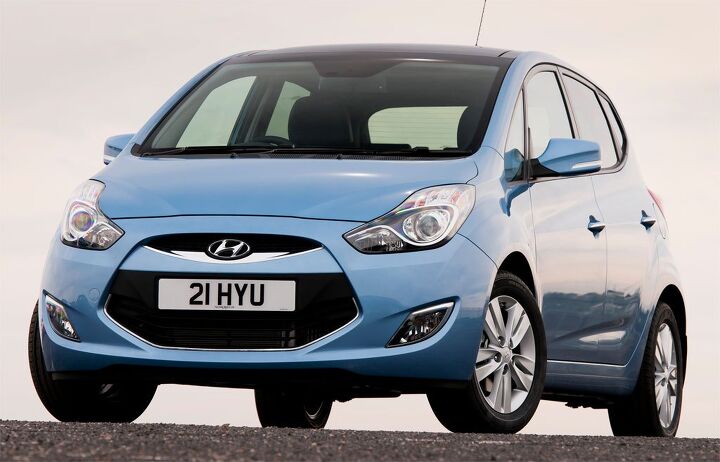
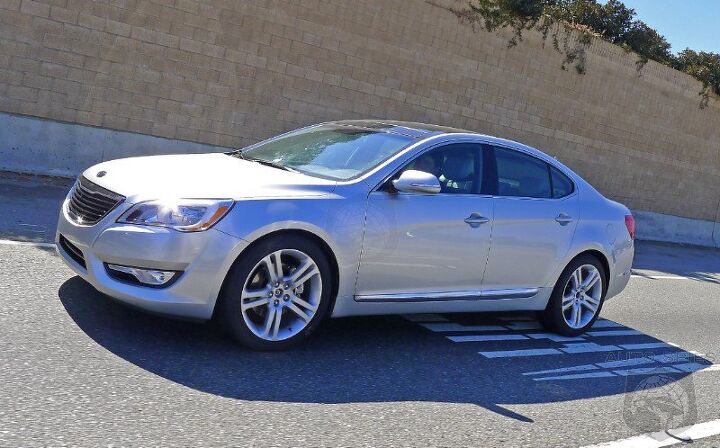
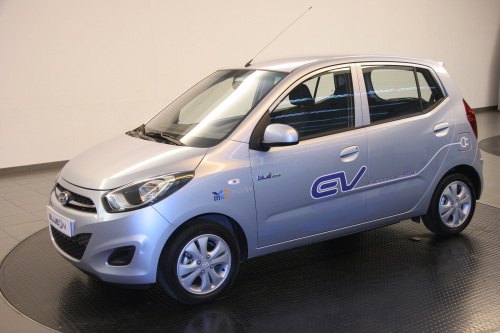
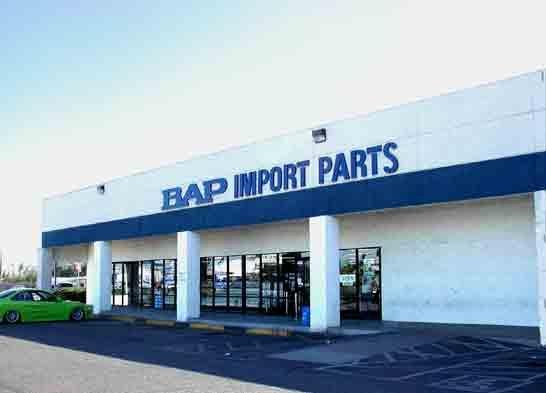
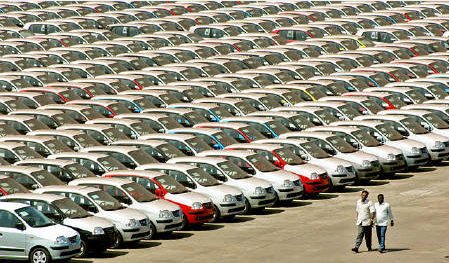
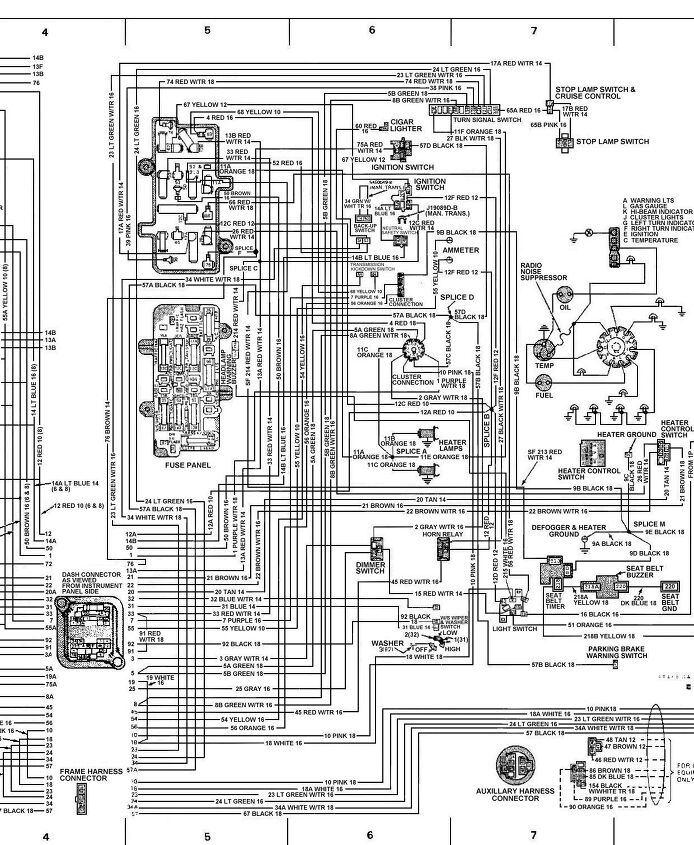


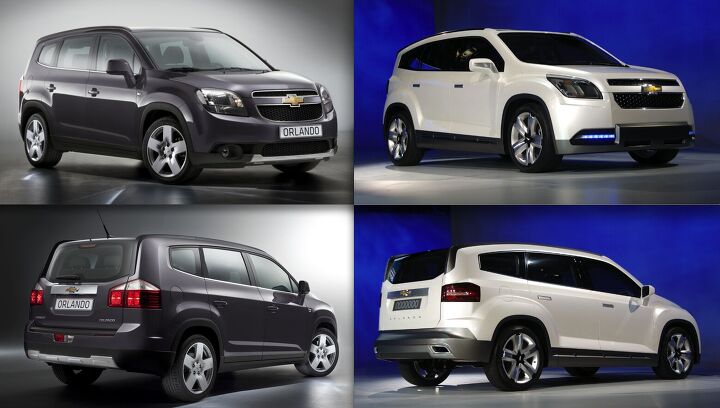

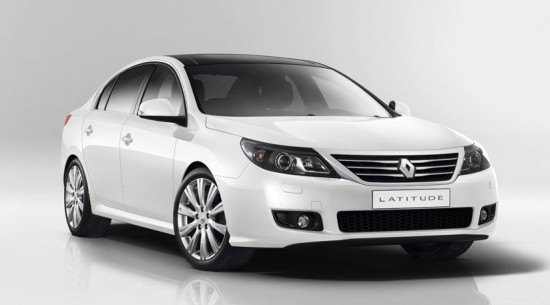
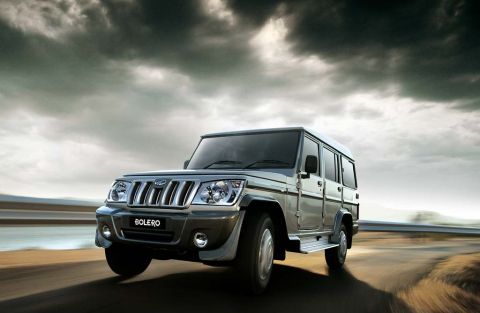
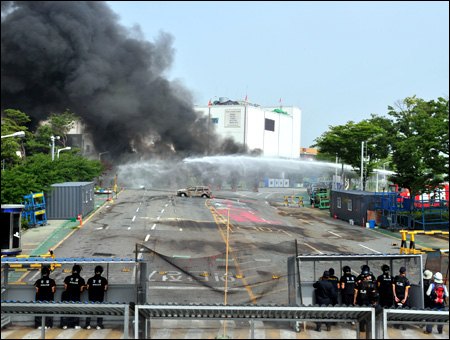
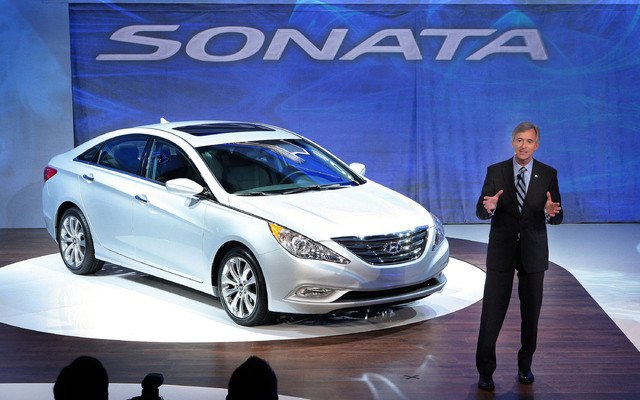

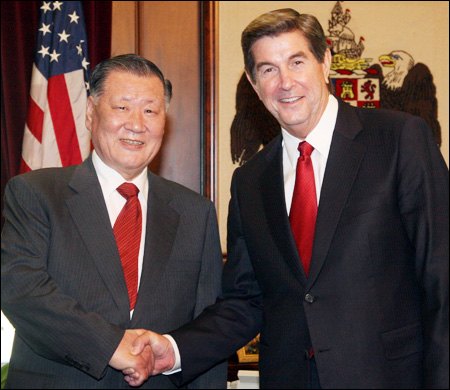
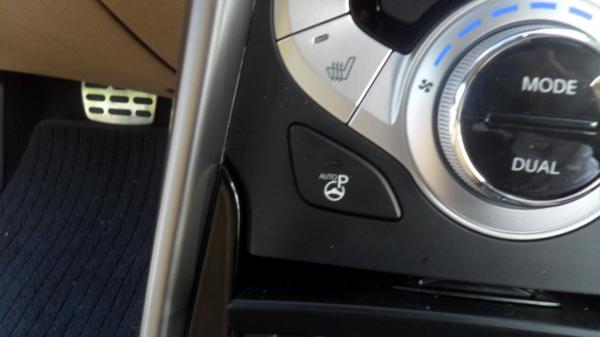
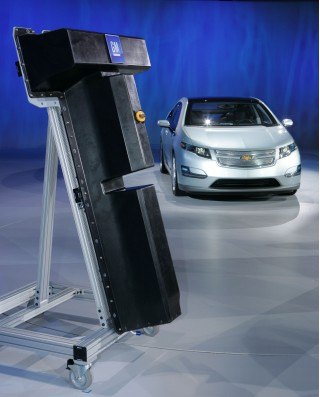





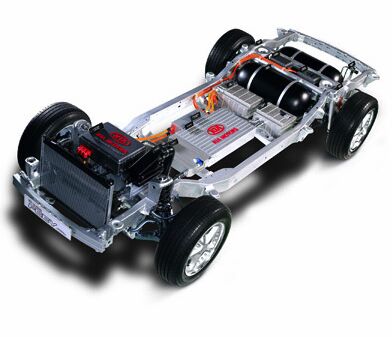



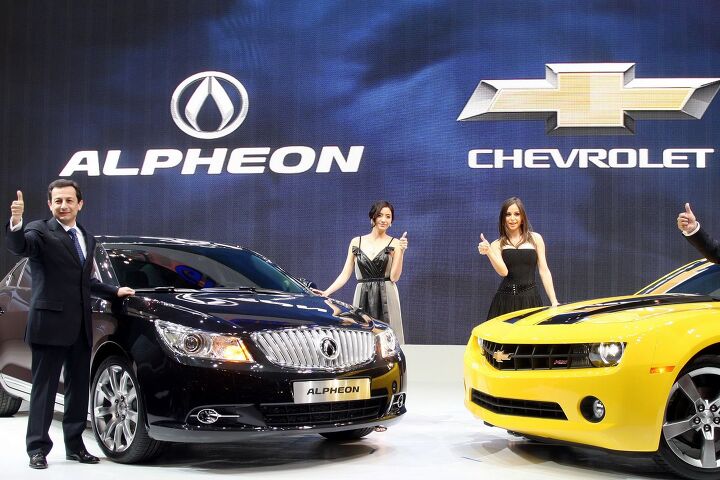
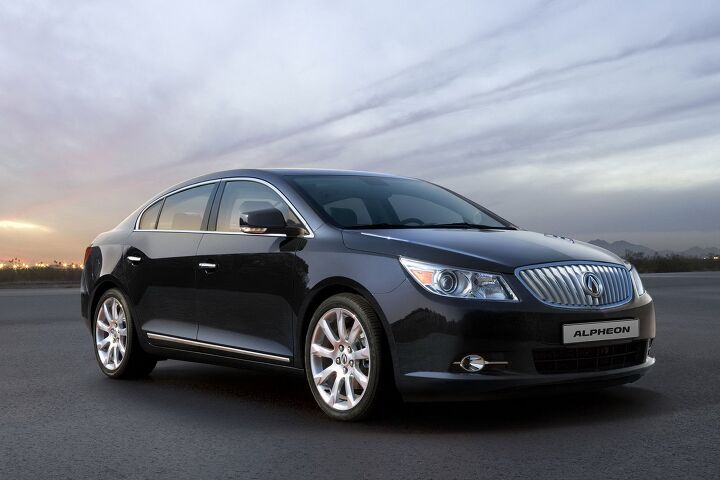
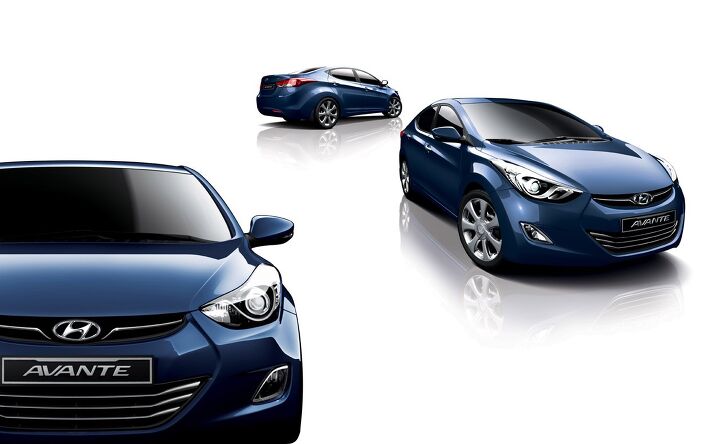
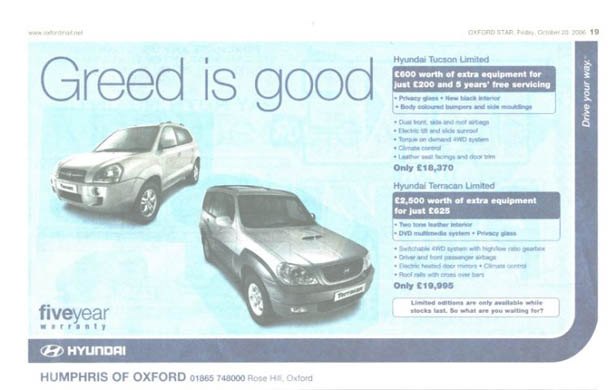

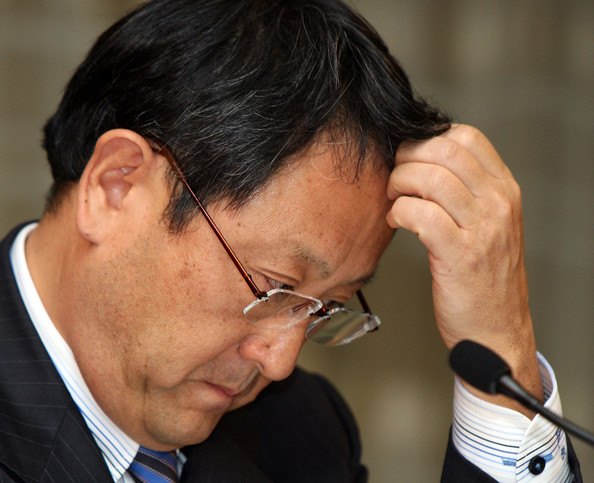
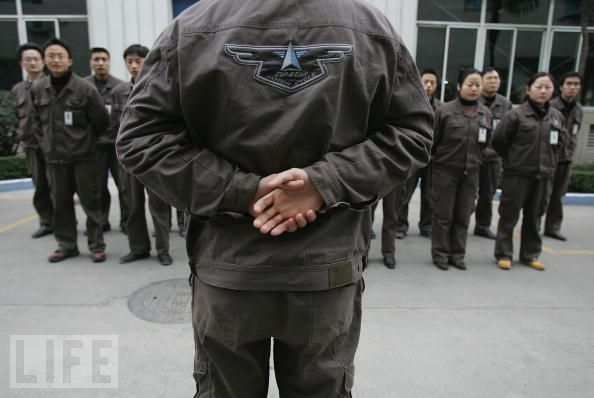



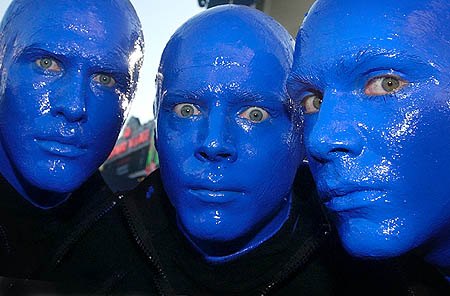

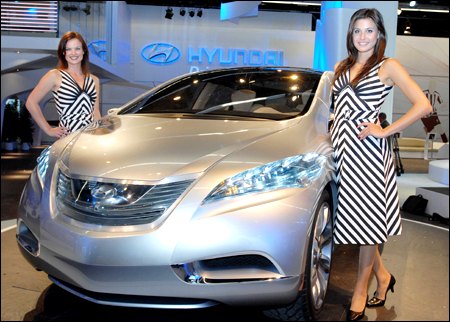

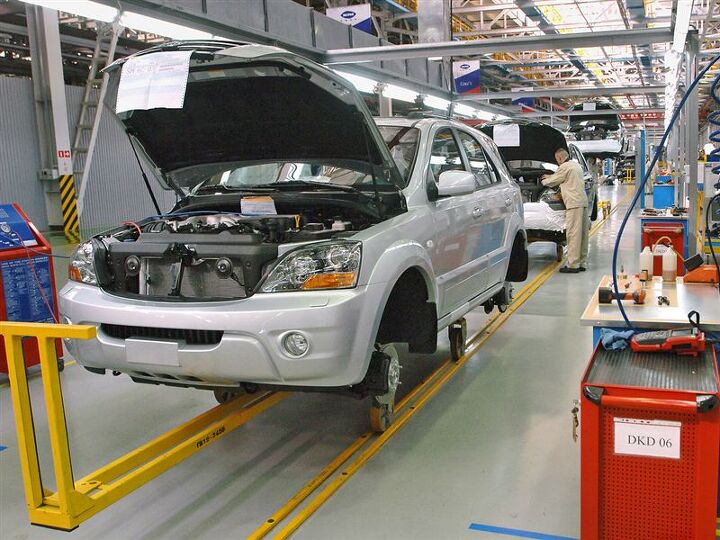

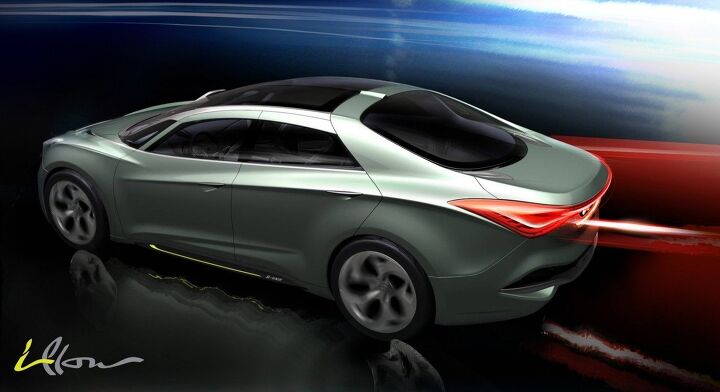
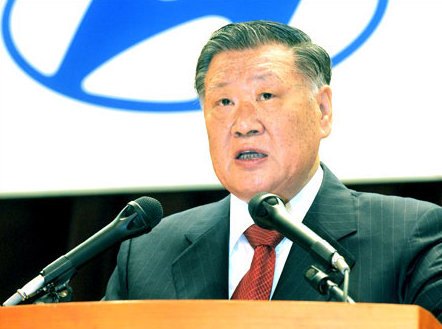
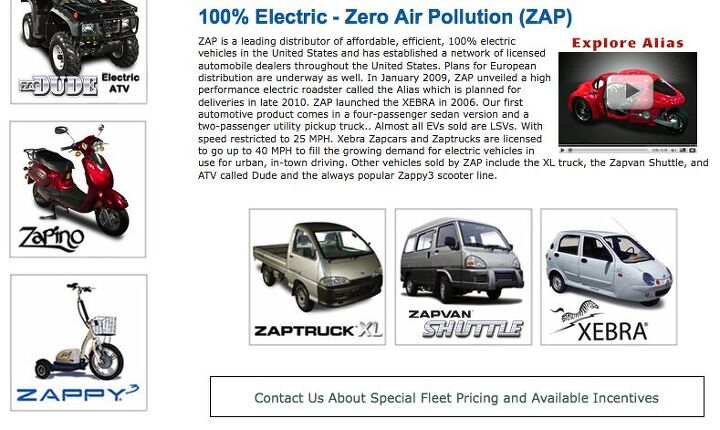
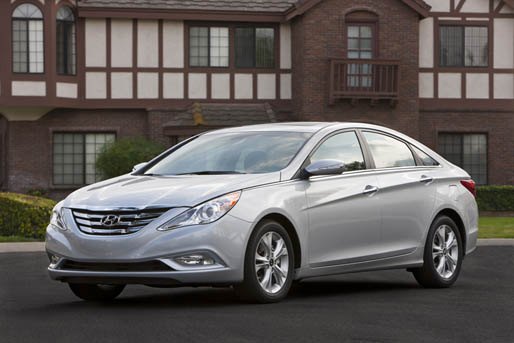


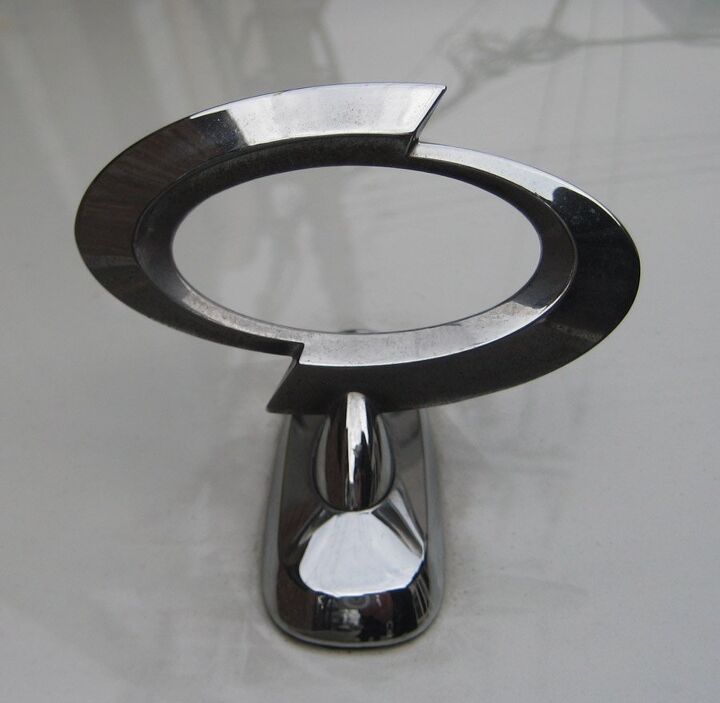
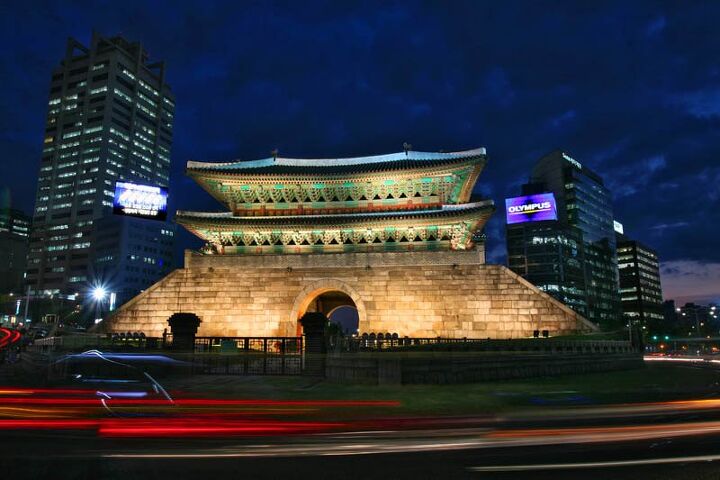
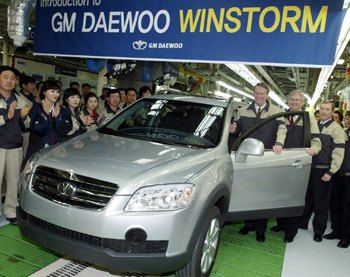

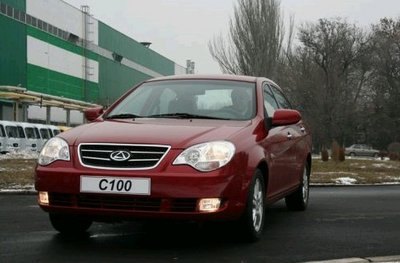
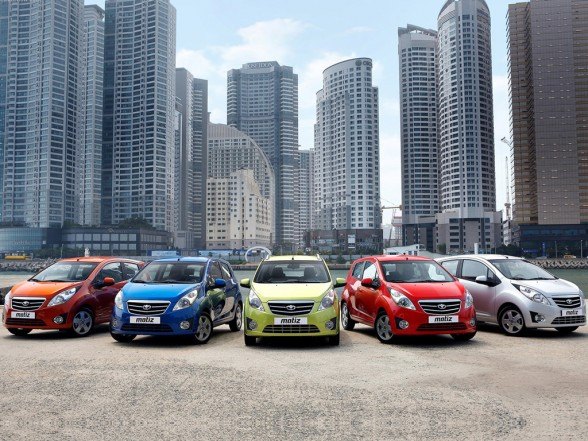












Recent Comments